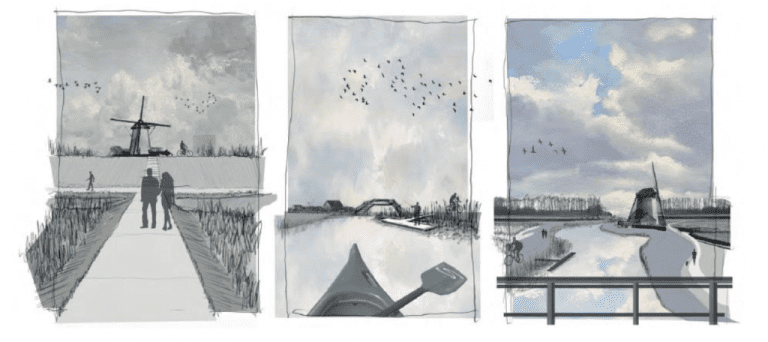Expo: international students design polders
An exhibition of designs by international master’s students on the future of the polders in Midden-Delfland opens Friday 22 April in the Town Hall of Delft. The exhibition will run until 23 May 2022.

International students sketched the polder landscapes of Midden-Delfland. (Foto: Ben Kuipers)
Professor of Landscape Architecture Eric Luiten called on his office colleague and polder architect Ben Kuipers to get a group of 45 international students to think about and come up with designs for the future of Midden-Delfland. The area has many conflicting interests, such as being used as a water buffer, a nature reserve, for food production and for recreation.
“Through their eyes, I saw again how complex our water system really is,” says Kuipers. He noticed that the international students did not shy away from rigorous measures such as relocating farmers off their own land. A Dutch polder architect would not have dared propose that.
There were also original solutions, such as keeping water buffaloes when a meadow has become too swampy. After all, buffaloes produce excellent mozzarella. The drawings about the past and future of Midden-Delfland have been collected in a booklet that is available at the exhibition. (JW)
Do you have a question or comment about this article?
j.w.wassink@tudelft.nl

Comments are closed.